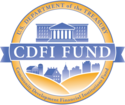8 Tips To Manage Your Credit Card Debt
Helpful Tips for Managing Your Credit Card Debt
Did you know that the average American household carries nearly $10,000 in credit card debt? Many people open their first card with the idea that they will use it to “build good credit” — and that’s certainly possible when used responsibly. However, life often intervenes, and periods of financial hardship or sudden emergency expenses can cause credit card debt to balloon out of control. Before long, it can feel like you are trapped in a cycle of making endless payments on a balance that never seems to decrease.
How can you approach managing your credit card debt more efficiently? Here are our top tips for managing your debt and making more effective financial decisions.
Credit Card Debt Affects Your Score Even With Timely Payments
An important note about credit scores before we explore tips for how to manage credit card debt. The calculations behind credit scores are complex and proprietary. While making payments on time and avoiding late fees are essential to preventing negative impacts on your score, consistently on-time payments won’t benefit you as much as lowering the overall balance of your cards. Remember, one of the factors used in computing your score is your utilization rate — that is, how much of your available credit you’ve used. As you lower your utilization percentage, your score typically increases. Therefore, remember that reducing your balance is the ultimate goal here once you get your payments under control. With that said, what steps should you take?
Limit the Number of Open Accounts You Have
The more credit cards you have, the more likely you are to resort to using your available line to pay for purchases for which you don’t have the cash. Rather than continually open new accounts every time you receive an offer, pick and choose your cards very carefully. The average American has four cards, which may be too many for the average spender. One or two cards with reasonable interest rates or rewards terms, smartly used, are better than half a dozen.
Always Strive to Pay More Than the Minimum
The “minimum payment due” you see each month has nothing to do with a planned repayment period but is instead a calculation made by the bank. If you only pay the minimum balance, it can take years or even decades to pay off a larger balance. Meanwhile, your balance continues to generate interest. Ultimately, you pay substantially more than you originally spent, without any corresponding reduction in financial stress. Whenever possible, pay more than the minimum — and consider making multiple payments a month when your finances allow driving that balance even lower.
On-Time Payments Are an Essential Step
Everyone misses a payment from time to time due to forgetfulness. Still, there is often a grace period before your card issuer reports your account as “overdue” to the credit bureaus. You should avoid availing yourself of those grace periods whenever possible and strive to make payments on time. A history of timely payments not only reflects positively in your credit score, but it also makes it easier to work with your issuer when you may need a temporary hardship deferment.
Avoid Allowing New Spending to Outpace Your Income
Watch out for falling into the trap of continually overspending every month. It is important not to think of your credit line as a source of funds to draw upon at will; it is not cash. Treating it like cash is a recipe for mounting debt and high monthly minimums which may make it a challenge to escape the gravity of your interest rate. Keep track of your spending habits and ensure that you aren’t spending more money than you make each month.
Watch Out for One-Time Deals Attached to New Cards
We’ve all seen the offers before — “get 10% off” or “take $25 off instantly” when you sign up for a store brand credit card. The idea seems OK at first, especially if you have a large purchase — but it’s never that simple. Opening and closing an account quickly is a recipe for dinging your credit score so that you may hold onto the account. Before long, you’re building a balance on that card too. Suddenly, that one-time deal doesn’t look as good as it once did.
Close Younger Accounts When You Clear a Balance
For some, it’s important to remove the temptation to begin using a credit line again once you’ve paid down the balance on one card. While the age of accounts contributes to your credit score, you may opt to close cards that you’ve had for shorter periods once they reach a $0 balance. By downsizing to just a few credit cards, you can re-learn to use credit effectively without going back into debt. Your score may take a minor dip after closing an account, but you can expect to see it rebound over time as you improve your other balances and maintain a good payment history.
Equip Yourself with the Right Tools for Financial Success
Escaping from credit card debt is no easy feat; there’s a reason why the debt load carried by the average American continues to increase. However, by taking the appropriate steps and taking care to use your credit appropriately, you can escape the cycle and begin building a positive net worth again. Avoid the temptation to continue using debt to finance a lifestyle you cannot afford over the long term.
Better financial resources to support your goals make a difference, too. At Resource One Credit Union, we’re dedicated to helping our members with robust financial tools, from accessible and low or no-fee spending accounts to higher interest savings options. When you transition away from relying on credit, these tools can make a difference. Contact us today for more about how we can help.





